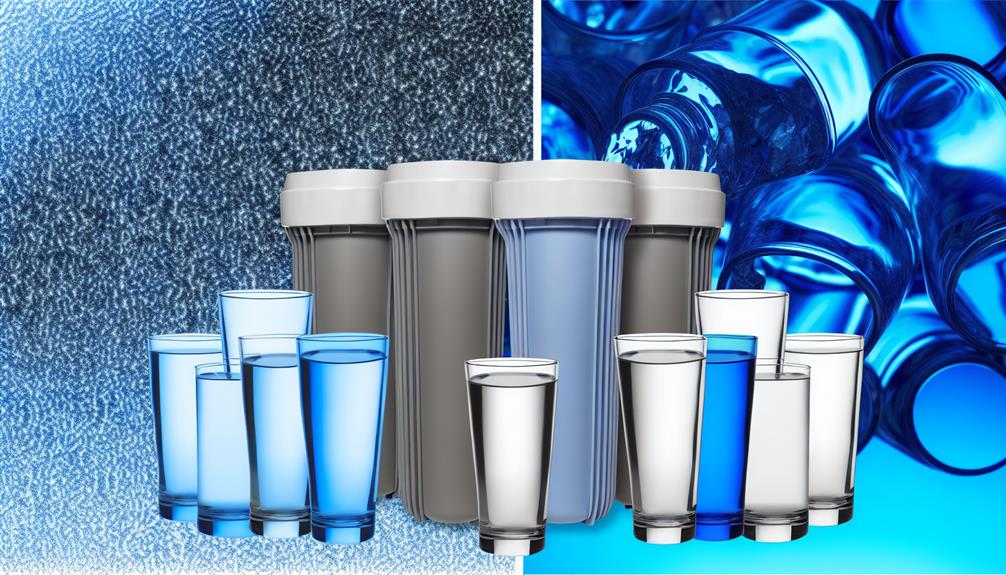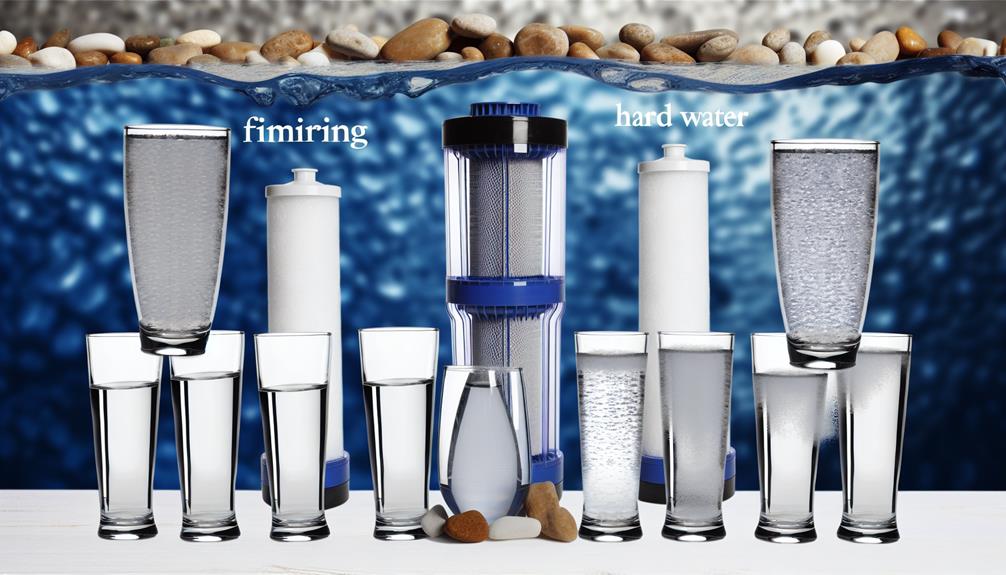Navigating the vast market of water filtration systems can be as challenging as decoding a complex puzzle, with each piece promising to fit your needs.
As you confront the reality of hard water in your home, you're undoubtedly aware that it can lead to scale buildup in pipes, shortened appliance lifespans, and less effective cleaning. It's essential to select a water filter that not only meets your water hardness level but also integrates seamlessly with your lifestyle and budget.
Among the top contenders are water softener systems, reverse osmosis filters, magnetic and electronic descalers, and advanced sediment filtration technologies. Each of these has unique benefits and potential drawbacks, and understanding how they compare can empower you to make an informed decision.
Stick around to uncover the critical factors that set these leading solutions apart, ensuring your next choice is as clear as the purified water you seek.
Understanding Water Hardness
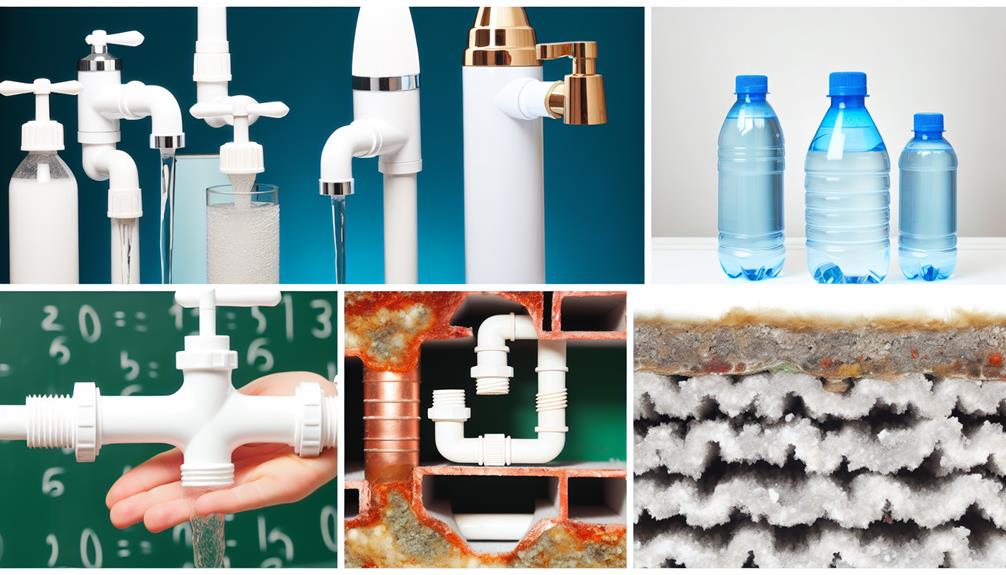
Before you select a water filter to tackle hardness, it's essential to understand what water hardness is and how it can affect your household appliances and plumbing.
Water hardness is primarily caused by high levels of minerals, notably calcium and magnesium, dissolved in your water supply. When water with these minerals heats up, it tends to leave deposits known as calcium buildup or scale.
These deposits can accumulate within pipes, reducing water flow and efficiency, while also shortening the lifespan of appliances like water heaters, washing machines, and dishwashers. Moreover, scale buildup on fixtures and surfaces can be unsightly and difficult to clean.
To manage these issues, it's important to determine the hardness of your water. Hardness testing typically involves measuring the concentration of calcium carbonate in water, expressed in parts per million (ppm) or grains per gallon (gpg). This testing can be done using readily available test kits.
Water Softener Systems
Having understood the implications of water hardness, let's explore water softener systems, which are designed to remove the minerals causing scale and extend the life of your household appliances. These systems typically operate by exchanging calcium and magnesium ions in hard water with sodium or potassium ions, effectively reducing hardness.
When considering a water softener for your home, it's essential to keep in mind several key aspects:
- Water Softener Maintenance: Regular check-ups and replenishment of the salt are crucial to ensure your system operates efficiently.
- Salt Alternatives: Explore systems that use potassium chloride if you're looking for a lower-sodium solution.
- Capacity and Size: Choose a unit that can handle the water usage of your household to avoid frequent regeneration cycles.
It's important to carry out routine water softener maintenance to prevent malfunctions and maintain the system's effectiveness over time. Additionally, salt alternatives can be beneficial for individuals on sodium-restricted diets or for those who are environmentally conscious, as potassium chloride is less impactful on the environment. Selecting the right size and capacity will provide you with softened water whenever you need it, without unnecessary downtime.
Reverse Osmosis Filters
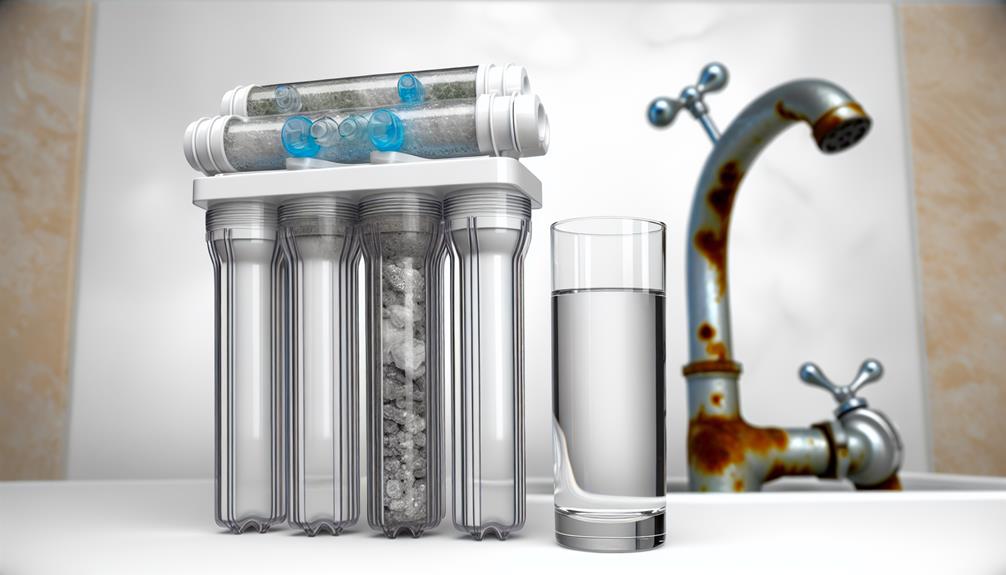
Reverse osmosis filters effectively strip away various contaminants, including dissolved minerals that contribute to water hardness, providing you with cleaner, softer water for daily use. At the core of these systems is a semi-permeable membrane with fine pores that only allow water molecules to pass through, while larger ions like calcium and magnesium—the culprits behind water hardness—are flushed away.
The osmotic efficiency of these systems is paramount. High osmotic efficiency ensures that the filter uses water pressure optimally to minimize waste while maximizing contaminant removal. This makes reverse osmosis filters a preferred option for those seeking a thorough filtration solution with the added benefit of reducing water hardness.
Contaminant removal rates for reverse osmosis systems are impressive, often eliminating up to 99% of dissolved solids. This level of purification is essential not just for improving taste and clarity, but also for protecting appliances from scale buildup and extending their lifespan.
While initial setup costs and maintenance requirements may be higher than other filtration options, the long-term benefits and comprehensive nature of the filtration process often justify the investment for those prioritizing water quality and appliance efficiency.
Magnetic and Electronic Descalers
Harnessing the power of magnetic fields, magnetic and electronic descalers offer an alternative method for addressing water hardness without the need for chemical additives or salt. These systems claim to alter the electromagnetic properties of calcium carbonate minerals, so they remain suspended in water rather than forming scale on the surfaces of pipes and appliances.
Consider the following advantages of using magnetic and electronic descalers:
- Environmentally Friendly: They don't introduce chemicals into the water, making them a more eco-conscious choice.
- Maintenance-Free: Typically, these units require little to no maintenance, which could save you time and hassle.
- Versatility: They can be used in various settings, from residential homes to commercial buildings.
When you're seeking scale prevention and pipe protection, these descalers are a compelling option. They work on the principle of magnetohydrodynamics, which affects the ionic charges of minerals. The theory is that this process prevents the minerals from adhering to surfaces, thereby mitigating scale buildup.
However, it's crucial to note that the effectiveness of these devices can vary, and scientific opinions on their efficacy are mixed. As you evaluate your options for water hardness treatment, weigh the technical specifications and reported performance of these descalers against other available water softening and conditioning methods.
Sediment Filtration Technology
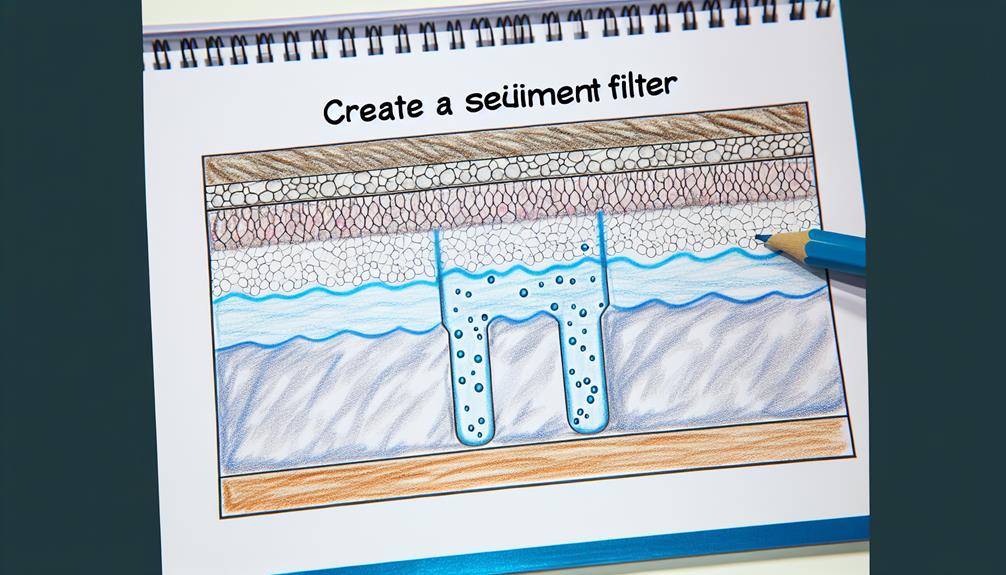
Shifting focus to sediment filtration technology, you'll find it's a critical step in removing particulate matter from your water before tackling the hardness minerals. This technology is designed to intercept various sizes of sediment, including sand, dirt, and rust, which can affect water clarity and taste. Additionally, sediment filters protect downstream appliances and water softeners from potential clogging and efficiency loss.
Sediment filters vary in grain capacity, which is a measure of how much sediment they can remove before becoming saturated. The grain capacity you'll need depends on your water's sediment levels. Higher grain capacities generally translate to less frequent filter changes, contributing to a longer filter lifespan. However, don't overlook the micron rating of the filter; this determines the size of particles the filter can capture. A lower micron rating indicates finer filtration, which is essential for capturing smaller particles.
When considering a filter's lifespan, think about the quality of your water and the volume that will pass through the system. Filters with a higher grain capacity often have longer lifespans, as they can hold more sediment before requiring replacement. Remember, regular maintenance and timely replacement are crucial to ensure consistent water quality and prevent damage to the filtration system.
Conclusion
With your newfound understanding of water hardness, you now know that water softeners, reverse osmosis filters, magnetic/electronic descalers, and sediment filtration technology each offer unique benefits.
Whether you're tackling scale buildup or seeking purity in your water, these systems ensure you're equipped with the right solution.
So, choose wisely to protect your appliances and enjoy the enhanced quality of water in your home or business, backed by the latest in water treatment technology.
